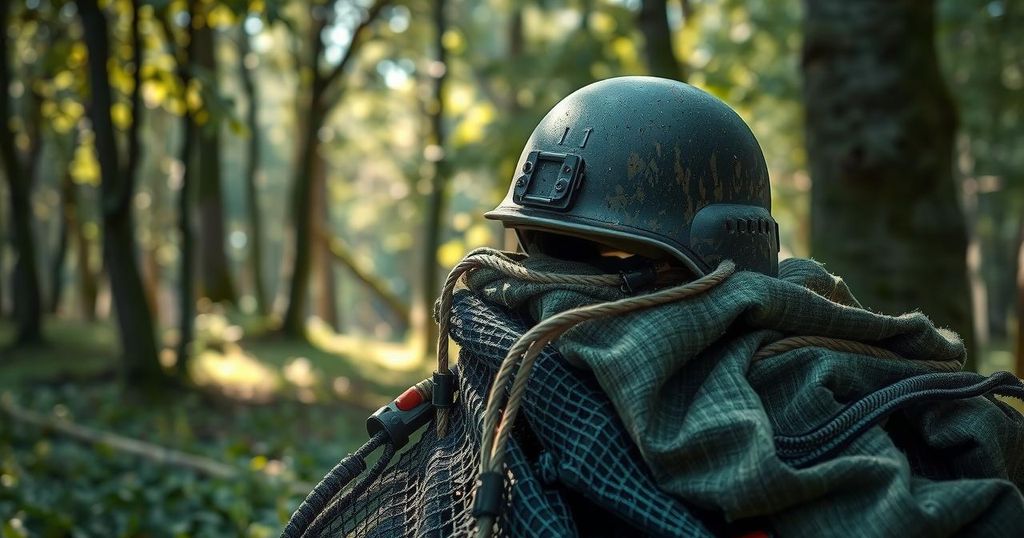DRC President Urges Military Recruitment as Rebel Threat Grows
Rwandan-backed rebels have advanced in eastern DRC, capturing strategic areas as President Tshisekedi calls for military recruitment. He condemned the international community’s inaction amidst the escalating conflict. The M23 group’s resurgence, supported by Rwandan troops, has led to increased tensions and regional diplomatic efforts aimed at peace negotiations.
Rwandan-backed rebels have consolidated their control over eastern Democratic Republic of the Congo (DRC), pushing further south with limited resistance. Recently, the M23 group captured two districts in South Kivu province without encountering significant fighting. In a televised address, President Félix Tshisekedi appealed to the youth to join the military to defend against the advancing rebels, promising a strong response to the escalating conflict.
The M23 rebels, with approximately 4,000 Rwandan troops supporting them, recently captured Goma, North Kivu’s capital, marking a significant evolution in the long-standing conflict. If the rebels penetrate deeper, they may threaten Bukavu, the South Kivu provincial capital, with Congolese army defenses concentrated around Kavumu. Additionally, many Congolese soldiers who retreated from Goma have fled towards Bukavu.
During his address, President Tshisekedi condemned the international community’s perceived inaction regarding the deteriorating security situation, calling for immediate military enlistment from citizens. He articulated that the country faces a grave threat from terrorist factions and underscored the necessity for a robust national defense. Notably, he emphasized that the silence of the international community is unacceptable amidst escalating violence.
The United Nations has reported that the M23 rebels’ resurgence is bolstered by 4,000 Rwandan soldiers, which is significantly higher than during the group’s previous incursion in 2012. The global response to Rwanda’s actions has intensified, with nations such as the United States expressing concern, Germany postponing meetings with Rwandan officials, and the United Kingdom putting significant foreign aid under review due to Kigali’s involvement.
Rwandan representatives refuted claims of military aggression, asserting that their support for M23 is focused on eliminating a rival rebel faction known as FDLR. Meanwhile, regional diplomatic efforts have been made, including a virtual summit of the East African Community, where leaders sought to advocate for a ceasefire and negotiations between the DRC and rebel groups. However, President Tshisekedi did not participate in these discussions.
The DRC is rich in natural resources, with substantial deposits of gold, cobalt, and coltan. Kinshasa accuses Rwanda of seeking to leverage its control of the M23 for economic gain from the region’s wealth, a stance supported by UN experts who allege that Rwanda exercises “de facto control” over the M23 group. Meanwhile, Rwanda has denied any involvement and maintained that its military actions are aimed solely at addressing domestic security concerns.
The ongoing conflict in eastern Democratic Republic of the Congo is rooted in complex geopolitical and ethnic tensions involving various rebel groups and neighboring countries, especially Rwanda. The M23 group, which has a history of insurgency in the DRC, has received backing from Rwanda in its attempts to gain territory and influence in the resource-rich region. The situation is exacerbated by accusations against Rwanda, claiming it seeks to exploit DRC’s mineral resources while benefiting from instability in the region.
The escalation of violence in eastern DRC, largely instigated by the M23 group and supported by Rwandan forces, presents a grave threat to regional stability. President Tshisekedi’s call for military enlistment among the youth highlights the government’s urgency in addressing this crisis. The international response continues to grow, emphasizing the need for diplomatic resolutions to prevent further territorial loss and humanitarian crises in the DRC.
Original Source: www.theguardian.com




Post Comment